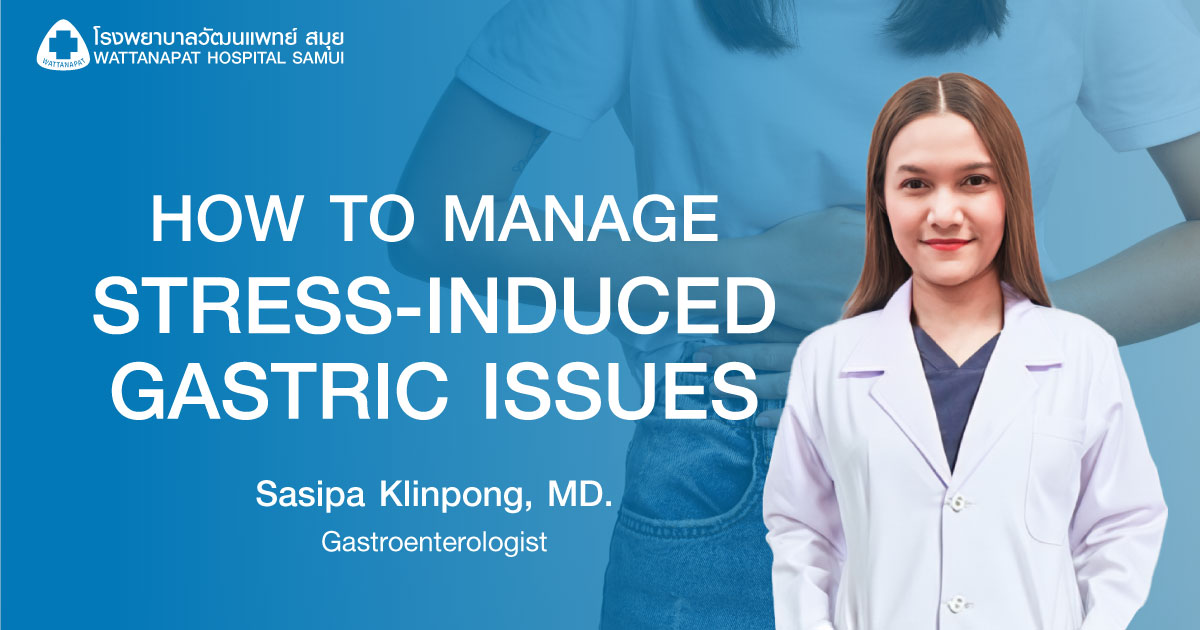Stress and Stomach Pain
How to Manage Stress-Induced Gastric Issues – A Common Condition in Working Adults
Understanding Stress-Induced Gastric Issues and Common Causes
Stress-induced gastric problems are frequently encountered among working adults, arising from mental and emotional stress that disrupts the stomach and digestive system. This condition often manifests as bloating, indigestion, or abdominal pain, all stemming from stress-related imbalances in digestive function. Often, overworking, insufficient rest, or poor dietary choices made amidst a hectic work environment contribute to these symptoms.
Notable Symptoms of Stress-Induced Gastric Issues
-
Bloating and Indigestion: Increased gas production in the stomach, causing discomfort.
-
Burning Sensation in the Stomach: Over-secretion of gastric acid may cause irritation and a burning sensation.
-
Nausea and Vomiting: The body attempts to expel contents to reduce digestive stress.
-
Feeling Full Quickly: Digestive function slows, leading to early satiety and decreased appetite.
Recognizing these signs early allows individuals to manage the problem proactively, mitigating its long-term impact on overall health.
Factors Contributing to Stress-Related Gastric Issues
-
Workplace Stress
High-pressure work environments, stringent deadlines, excessive responsibilities, or competitive atmospheres can heighten stress levels. This stress triggers cortisol release, which subsequently prompts an increase in gastric acid secretion, exacerbating digestive discomfort. -
Irregular Eating Habits
Busy schedules often lead to irregular meals, disrupting digestive equilibrium and increasing the likelihood of bloating and indigestion. -
Excessive Caffeine Intake
Beverages high in caffeine, like coffee, can further stimulate gastric acid production. Overconsumption may lead to a burning sensation in the stomach.
Strategies for Managing and Relieving Stress-Induced Gastric Symptoms
-
Practicing Relaxation Techniques
Methods like deep breathing exercises and meditation can effectively alleviate stress, reducing the risk of digestive disturbances. -
Choosing Digestive-Friendly Foods
Opt for easily digestible foods such as oatmeal, leafy greens, and lean proteins, while avoiding high-fat and fried foods to lessen the digestive burden. -
Setting Boundaries for Work and Rest
Balancing work with adequate rest and avoiding after-hours work gives the body a chance to recover and reduces accumulated stress, which in turn alleviates gastric issues. -
Avoiding Stimulating Beverages
Reducing intake of caffeinated drinks such as coffee, tea, and energy drinks can prevent excessive gastric acid secretion and minimize stomach discomfort.
Medical Treatments and Professional Guidance for Stress-Induced Gastric Issues
Medical professionals may prescribe antacids to reduce stomach acid production or medications to regulate gastric muscle activity. For persistent symptoms, consulting a doctor for tailored treatment is advisable.
Tips to Prevent Stress-Induced Gastric Issues
-
Regular Exercise: Exercise not only supports digestive health but also helps to alleviate stress.
-
Adequate Sleep: Aiming for 7-8 hours of sleep allows the body to recover, reducing stress.
-
Avoid Trigger Foods: Minimize spicy and high-fat foods that can aggravate gastric issues.
Stress-induced gastric issues are common in today’s working population and, if left unmanaged, can affect long-term health. By adjusting dietary habits, prioritizing rest, and implementing daily stress management practices, individuals can proactively prevent and ease symptoms, fostering better health and an improved quality of life.



